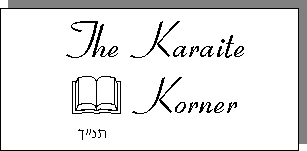

Counting of the Omer - Heb. Sefirat Ha'Omer. The 50-day period between the bringing of the Omer Offering [Wavesheaf Offering] and Shavuot. By definition, Shavuot is on the 50th day of this period. According to the Torah, the Counting of the Omer begins on the Sunday during Hag HaMatzot (Feast of Unleavened Bread) while according to the Rabbanites it begins on the 2nd Day of Hag HaMatzot. The Rabbanites observe this 50-day period as a time of mourning to commemorate the tragedy which came in the wake of the false Rabbanite Messiah Simeon ben Kosibah, also known as Bar Kokhbah. There is no Biblical basis for observing this period as a time of mourning.
Feast - The English equivalent of Hag.
Hag - Pilgrimage-Feast. One of the three holidays on which every Israelite male is required to make a pilgrimage to the Holy Temple in Jerusalem and "appear before Yehovah".
Hag HaMatzot - Feast of Unleavened Bread. Today this holiday is widely known as Passover or Pessah. However, in the Tanach (Hebrew Bible) Passover is the name of a sacrifice brought on the 14th of Nissan, while the holiday itself is called Hag HaMatzot. This holiday falls out on the 15-21 of the First Month and work is forbidden on the first and seventh days of the holiday.
Hashem - literally: The Name. A reference to Yehovah, the God of Israel.
Hol HaMo'ed - a day which is part of a Feast but on which work is not forbidden, specifically the 2nd-6th days of Hag HaMatzot and the 2nd-7th days of Sukkot.
Holiday - Heb. Mo'ed (lit. appointed time). A term which includes all the Biblical holidays (except Purim) and the Sabbath.
Nissan - The Babylonian name for the First Month.
Omer - A sacrifice brought on the Sunday during Hag HaMatzot, consisting of the first harvested sheaves of the new barley harvest. These sheaves are waved before the altar and the Torah calls them "Omer Ha-Tenufah" (The Sheaf of Waving, also translated as Wavesheaf). See also Counting of the Omer.
Pessah - also Pessach. In English: Passover [Sacrifice]. A sacrifice brought during twilight at the end of the 14th of the First Month [Nissan]. In modern usage, the holiday which the Bible calls Hag HaMatzot.
Rabbanites - A Jewish sect founded in the second century BCE that believes a second Torah was given orally on Mt. Sinai and that the Rabbis are the only legitimate interpreters of God's Law. Also called the Pharisees (Heb. Perushim, meaning those who cut themselves off). This sect celebrates Shavuot on the 6th of Sivan [Third Month].
Sabbath - Saturday. Heb. Shabbat or Shabbath. The 7th day of the week.
Sabbath of Genesis - Heb. Shabbat Bereshit. A medieval Hebrew term referring to the weekly Sabbath, i.e. the Seventh Day of the week.
Shavuot - Feast of Weeks. Also known as Pentecost. Full name: Hag Ha-Shavuoth (The Feast of Weeks). The Torah also calls this day Yom HaBikurim (The Day of Firstsruits) and Hag HaKatzir (The Feast of Harvest).
Torah - Pentateuch. Also called the 5 Books of Moses. Literally: Law. The Torah comprises the word of Yehovah revealed to Moses.
Tanach - Hebrew Scriptures. Incorrectly called "Old Testament" by the Christians. Tanach or Tanakh is an acronym for the three sections of the Hebrew Bible: Torah [Law], Nevi'im [Prophets], Ketuvim Kedoshim [Holy Writings].
Yom Tov - Holy Day [lit. "Good Day"] (sometimes pronounced Yuntif). A holiday on which work is forbidden, although unlike the Sabbath, fire and cooking are permitted. For example, the first and last days of Hag HaMatzot. This term is a medieval Hebrew term and is the equivalent of what the Tanach calls Mikra Kodesh ("holy convocation").